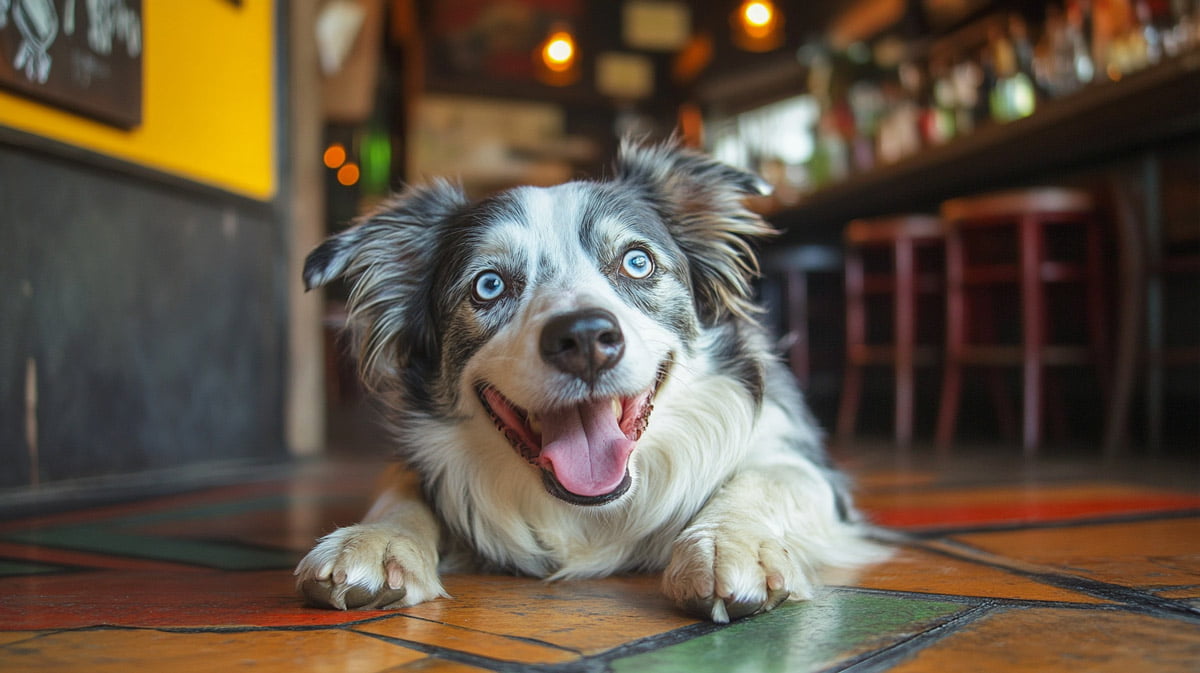Stuart Martin, owner of Archer Brewing in Brisbane, used to run a pub where dogs weren’t just welcome—they could even enjoy a pint of “dog beer” alongside their owners. But everything changed in November 2023 when Brisbane City Council forced Martin to ban dogs after a single customer complaint.
The council’s ruling was based on Australia’s national food safety standards, which prohibit pets in any area where food is consumed or prepared. For Martin, this was more than just a rule—it was a loss of community. Locals who once strolled in with their dogs to enjoy a drink now walk by with a wave, but no stop-in. Even Archer, the brewery’s namesake brown border collie, is no longer allowed to hang out in the pub.
A Campaign to Change the Law
Archer Brewing is now pushing for a change in the National Food Standards Code. Martin doesn’t want to allow dogs in food preparation areas or mandate dog-friendly policies for every venue. Instead, he believes it should be up to the individual pub or restaurant owner to decide whether dogs can join their human companions inside. The campaign, backed by a petition with more than 11,000 signatures, has caught the attention of Brisbane Lord Mayor Adrian Schrinner, who has written to the Federal Health Minister to request a review of the outdated code.
The issue isn’t unique to Archer Brewing. Several Brisbane venues, like Little Genovese cafe, have also been forced to turn dogs away after customer complaints. Previously, Little Genovese allowed dogs, birds, and even chickens inside. Now, dogs must wait outside, with staff forbidden to even pet them.
The Importance of Dogs in Public Spaces
Martin’s argument is simple: dogs are family. In countries like Scotland, it’s common to see dogs lounging beside their owners in pubs. Martin believes Australia should follow suit. The pub’s design even accounted for the presence of dogs, with doors separating food preparation areas from customer seating.
Archer Brewing sits on a popular dog-walking route along Enoggera Creek, and Martin wanted his space to be inclusive for dog owners who often passed by. To cater to these canine customers, he introduced a dog beer made from carbonated chicken stock, with $2 from each sale going to the Animal Welfare League. This initiative was popular with locals, and it created a space where both dogs and their owners felt welcome.
Confusion in the Law
The Food Standards Code prohibits dogs from areas where food is served, but the law is often seen as unclear. Even venues with food trucks parked outside aren’t allowed to have dogs inside, as the code applies to any venue where food is handled. Many venue owners are unaware that food handling areas include dining spaces and bars, which has led to confusion and inconsistent enforcement.
Adding to the frustration is the fact that some venues, like Bunnings, are exempt from the rule despite having cafes. For Martin, this inconsistency highlights the need for a change in the law—one that allows venue owners the freedom to decide whether to welcome dogs, just as they choose on their menus or opening hours.
Help Make the Change to Dog-Friendly Venues in Australia
While Martin acknowledges that not everyone enjoys dining alongside dogs, he believes there’s room for compromise. Dog-friendly venues could have designated dog-free areas, and customers who prefer not to eat with dogs could choose different spaces. At Archer Brewing, for instance, the upstairs area could remain dog-free, giving customers a choice.
In the end, Martin’s campaign isn’t just about bringing dogs back to his pub. It’s about changing how Australians view dogs in public spaces. And with enough support, he hopes to see the Food Standards Code reflect more modern, dog-friendly values.
If you believe venue owner should have more flexibility and choice to welcomed dogs into pubs and cafes, consider signing the petition. Help Stuart Martin and Archer return to their rightful place—at the pub, by the side of their human friends.







